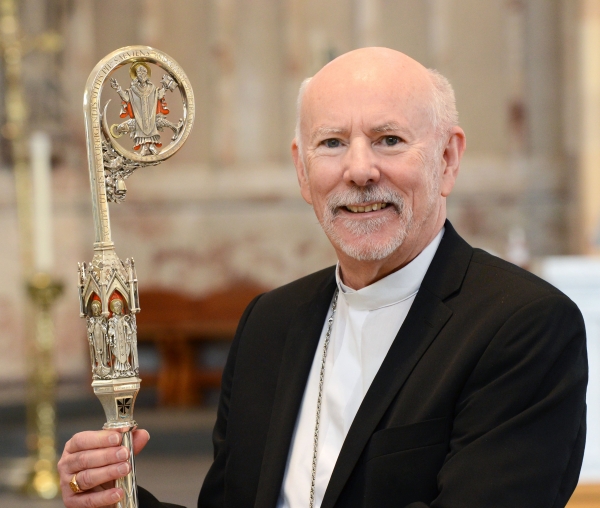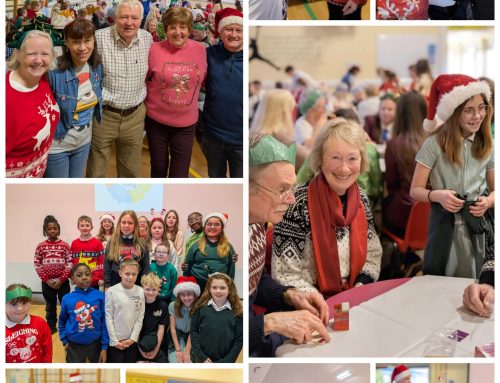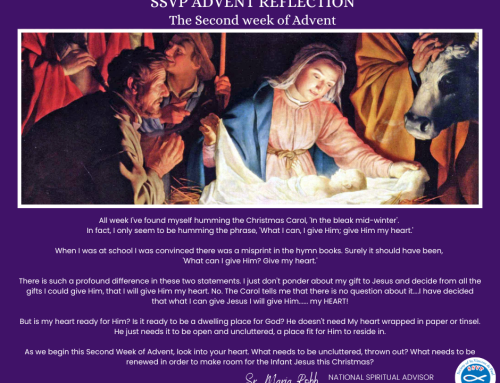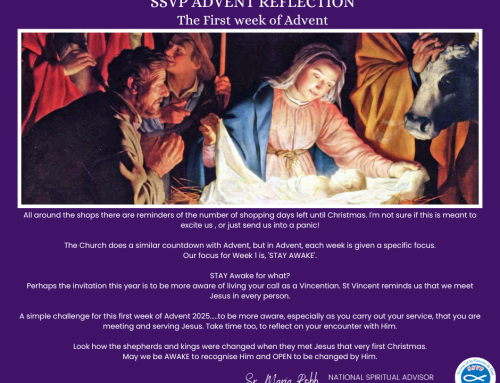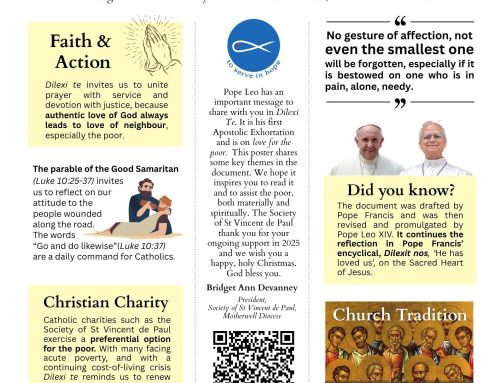Archbishop Nolan has addressed a letter to the Catholic community of Scotland on the importance of forgiveness and hope in the ongoing search for peace between people and between nations.
It will be read/distributed at all Masses this weekend.
The full text follows.
You can also view a video version at https://youtu.be/PXptxhmryUA
My Dear Sisters and Brothers in Christ,
If the Church cannot offer people hope then the Church has nothing to offer.
We live in a world where injustice is commonplace and peace is sadly lacking. As we look at the many trouble spots around the globe, where there is war and conflict, death and destruction, misery inflicted on so many people, it is easy to lose hope.
Some conflicts never seem to go away, they may die down for a while but then they flare up again: some enemies never seem capable of making peace.
It is in this world that we have to offer people hope: hope that comes from Christ. For God alone is our hope and the hope of the world.
That hope comes through forgiveness. God’s forgiveness of us and our forgiveness of others.
Popular wisdom says you should forgive and forget. No, we should not forget past hurts; for they should spur us on to seek justice; they should remind us of the need for compassion.
What is essential is that we forgive. “Forgive us our trespasses”, we say in the Our Father, asking God to show compassion to us. But we also say: “as we forgive those who trespass against us”. That is the hard bit – the forgiving of others. But if we don’t forgive there can be no healing, no reconciliation, no peace.
In our world we all suffer due to a lack of forgiveness.
How many disputes in families go on for years, because the pain goes deep and the very thought of what happened is still too sensitive for forgiveness ever to be considered. No forgiveness means no reconciliation. No reconciliation means no peace.
And when it comes to the family of nations, past grievances influence today’s policies and actions, because the hurts of the past are not forgotten, nor forgiven.
I have listened, for example, to Palestinian politicians rhyming off every abuse they have suffered at the hands of the Israelis, I have heard Israeli officials similarly recall in detail all the abuse and discrimination that Jews have had to endure. Each side so caught up in their own grief and pain that they seem insensitive to the other side.
The pain suffered is real, the injustices that have taken place are a reality, but if their memory is used to justify continuing the conflict, there is no hope and peace remains a distant dream.
Without forgiveness there can be no peace: whether peace in our family or peace among the family of nations.
Without forgiveness the ills of the past continue to dictate and taint the actions of today and the suffering continues. It is forgiveness that gives hope.
It can be, of course, that forgiveness feels like a betrayal – betrayal of those who have suffered injustice – that it belittles the lives of those killed by acts of war and violence. It is right that there should be anger at injustice. Righteous anger, though, leads to a desire for justice, it nurtures a feeling of compassion.
But beware of anger that causes bitterness and resentment, that seeks retribution and revenge, that hardens the heart and takes away our compassionate humanity. The injustice of the past needs to stay in the past.
The remedy for past injustice is to work for justice today. It is a betrayal of those who suffered in the past if we continue the suffering today.
We live in an imperfect world full of imperfect people. The failings of nations and of individuals mean we come constantly face to face with injustice. Only if we forgive their failings can there be any hope of being at peace with others.
To bring the hope of Christ into the world is quite a challenge, for what we are seeking is a change of heart: a change of our own heart not just a change of other people’s hearts. It means bearing the pain of injustice with the same compassion with which Christ endured his own pain. “Father forgive them,” was his prayer from the cross.
May we, the Church, bring hope to the world by bringing it the forgiveness for which Christ prayed.
May I wish you God’s blessing and every peace in the year ahead,
+William Nolan
Archbishop of Glasgow
President of Justice & Peace Scotland

